Jerusalem In My Heart came to our attention last year after his collaboration with fellow Montréalais Suuns, an album we described as being ‘art rock meets dystopian, Middle Eastern inspired experimentalism’. With its blistering mix of bazuk, emotive vocals and industrial noise-scapes his second solo record, If He Dies, If If If If If If, ended up trumping that project as one of our albums of year.
A Lebanon national whose family moved to Montreal during the Civil War, he soon involved himself in the local music scene, becoming an in-house producer at Hotel2Tango, a recording studio where he’s worked with the likes of Ought and Eric Chenaux. His first record, Mo7it Al-Mo7it, was released by Constellation Records in 2013, whom he continued to work with for the follow up (he uses numbers in his track names to recreate Arabic word sounds).
We talked with Jerusalem In My Heart, otherwise known as Radwan Ghazi Moumneh, over Facebook to discuss touring, social inclusion in music and the dangers of exoticism. He plays a London date with Lucrecia Dalt at Cafe Oto on February 18th (the remainder of his European dates can be found HERE).
How have the shows been in Europe so far?
It’s a month-long tour that we just started at the CTM Festival in Berlin, and we then played two shows in Poland and Zagreb last night. Now we have a couple of shows in Italy before we head into Switzerland and from there I can’t quite remember… The shows have been absolutely stellar. All four thus far sold out.
How was CTM? I saw a lot of interesting news coming from the panel side of that event. I guess that must be perfect for you as it’s orientated around visual and music?
Well what can I say. It was a truly amazing experience for many reasons. For one, Rabih Beaini, the co-curator is a dear friend and an amazing talent, so I was very happy when he shot me over a message to ask us to play. Simultaneously, I was asked to do sound the night previous to our show for Abdel Karim Shaar, the tarab singer from Beirut whom I had written the Epiphanies article about in The Wire. He’s a legend and someone whom I respect enormously, let alone his influence on me. Also, it was a real treat to be there with so many of my dear friends from Beirut, who were also on the program (Sharif Sehnaoui, Mazen Kerbaj, Praed, Dwarves Of East Agouza, Maurice Louca, DJ Ziad Nawfal). And lastly, the fact that we have had a difficult time booking a Berlin performance for the past couple of years, so this was an absolute pleasure.
That is a list of artists I will be sure to get to know… how come the difficulty booking a Berlin show?
Not sure why Berlin has been such a difficult one for us in the past. The confusing part is that the show was sold out at just under four hundred attendees and they turned away around one hundred people at the door. Go figure…
An invite back can’t be far away after that then… it must be quite different being an artist who does sound for other bands while also on tour yourself, does that help give you different perspective on how to perform or play?
Hahaha, well it’s a tricky one. I normally try and keep the two as far apart as I can, as it usually makes for a very stressed out experience. I only said yes to this as I didn’t want Abdel Karim to have a bad experience at this, and the language barriers could present themselves as problems, etc. Him and his band are very sweet and genuine people, and the idea of them running into problems would have bothered me. It was a rather stressful show, with the venue sold out and expectations sky high! Pressure was on, and the room wasn’t the easiest to mix in, but I think overall the show was fantastic. It did add to the stress of having to play the first show of my tour the next day, after not having seen my bandmate for two and a half months and not really rehearsing and all that. We rented a rehearsal space for six hours the previous day, just to sharpen our claws a little.
Indeed it does present a different perspective to be on both sides of stage (just like at the studio as well where I’m producing people’s music but then have to work on my own). It just adds to the wealth of knowledge these disciplines have to offer, and I am always hopeful that I am marrying a certain technical know-how with something of taste that people can relate to.
On the topic of collaborations, many people were introduced to you via your Suuns collaboration last year, but a lot of your work is collaborative to some extent [filmmaker Charles-André Coderre directs the project’s visuals]. Is working with other people important to your creative process?
I have to admit that working with people in a collaborative capacity is not something that comes naturally to me. I am a person who works really slowly and it takes me forever to think of an idea and to realise it. The Suuns collaboration took roughly two years to complete, not because of anything other than I need time to reflect and process what I’ve done. The record I made with Eric Chenaux took equally as much time, and was done long distance. We had tried doing it live in my studio and it was just horrible! So I am one who needs a lot of ‘alone time’ to work on material. In the context of Jerusalem In My Heart, the collaborative part plays a much smaller role in the sense that I give some precise direction to people and they interpret what I am saying, and I always go with the first result.
My family is not a musical one. No one in our family, immediate or distant, is a musician actually. I did decide to play music in Montreal, shortly after we moved there. The music I played early on was really aggressive thrashy punk.
But over time, I decided to introduce Arabic elements to it. And over the years, just from moving away from that music [punk], Jerusalem In My Heart was born. Indeed, to me it is a way to present, not represent, what I am inside. Arabic music is so vast and doesn’t fall under one category, and I am hoping that I am expanding on that language of the history of contemporary Arabic music.
That leads me onto one of the topics I wanted to get onto… I’ve never been to either Canada or Lebanon, and yet the music works for me on an emotional level. However, it can feel quite hard to describe it without feeling like I’m oversimplifying styles of music which are pretty unrepresented in European pop culture. It sounds like with the CTM line-ups etc., that broader types of artists are being given exposure though – do you think this will help to bridge the ignorance gap in that respect?
I don’t know if I’d say that it’s a matter of under-representation in European pop culture alone. To me it feels much more of a global issue. I can’t say that I feel that much Arab culture is represented in North American pop culture either. And I say culture to include literature, art, cinema etc. That’s one thing. Also, one has to obviously look at what the current state of affairs is. Right? Its not like being an Arab right now is something that doesn’t come with a certain weight to it everywhere. The idea of ‘the other’ is so heavy here across Europe right now, and it is rather worrisome as to what road all this is leading us to. The migrant crisis that we all face is a huge one, and one that is the result of decades of poor, selfish and inhumane foreign policy, made by people with no foresight. Good on CTM for inviting Rabih Beaini as a co-curator, and good on Rabih for having the desire to make this statement by inviting these artists.
After our performance, we almost always get into conversations with people about what it is that I sing about. People, just like you mentioned above, connect with the sentiment, but don’t understand the words. It is very much part of what this project is about. To be able to communicate with you with words you do not know. And of course, it happens quite regularly that certain people get irritated at the fact that they cannot understand the language behind this charged show. Right? It becomes a barrier, and one that often shows people to themselves that they are letting certain biases come through, in that a guard is up because of this ‘other culture’ that they cannot trust until they are feeling like they are in control, by ‘understanding’ it. These are very much ideas that for me are the building block of what Jerusalem In My Heart is about.
A recurring theme in your interviews is your wish to have a wider Arabic audience, especially in the European shows. It’s seems important to try and make musicians on stage more diverse but also to try and make the shows themselves more inclusive.
Of course. More accessible. It is hard. I understand that. It’s something I wish was a regular thing at our performances but it sadly isn’t. Not even in Lebanon do I feel like this is something that would attract an audience that isn’t versed in Western contemporary music. I feel like there is a barrier and I have yet to understand how to break it. I am happy with the work we do, in that it is a careful audio patchwork, that is anchored in discipline and in total chaos, so I do not want to waver from that idea. I feel that often it’s in how the performances are presented to the public, that makes it non-inclusive to wider Arab audiences. Maybe.
The album title was taken from graffiti you saw, and the project ties in with folk traditions and instruments. I wanted to get your take on the importance of the music being about artistically representing people, stories, your experiences, as opposed to “culture as just culture”, as you described it to Fact.
Culture as culture vs culture as art. It’s a somewhat complicated topic as it touches on so many ideas, and some quite sensitive. You know, the idea of what an exotified culture can be for someone is a very fragile and dangerous thing. In music, Europe and North America have an obsession with much Middle-eastern and African culture (as well as South-East Asia etc. but let me speak about this). We see that in the absolutely impressive catalogue of re-issues and recordings ‘properly’ released on labels that fit the conventional idea of what a ‘contemporary indie label’ should be. This often feels like ‘culture for culture’s sake’. I don’t give a fuck how many Turkish psych rock records from the ’70s you have. Unless you have an intellectual connection, as minor as it could be, with that culture to justify your obsession, it’s exotification. It’s just getting so damn tiresome at this point, ten years into this trend. I was at a ‘psych fest’ last year, and there was an actual tent, full of white dudes smoking hookas with said Turkish psych rock blaring out of speakers. Absolutely gratuitous. So first degree on every level. Pretty embarrassing.
What is that intellectual understanding to you? Understanding the history of those countries, the politics, the philosophies via books, or knowing people from those countries, or travelling to those countries? I guess this ties back with the inclusion topic we touched on earlier…
All of that! All these places have rich cultures, that are ancient and so rich. Personally, music, cinema and literature aren’t just things that I experience. If I am attracted to them, I cannot help but want to dig deep and understand and try to make some sense of why this exists in the way it exists? Why am I so attracted to this? Just consuming it is never enough. I respect it all too much to have such a relationship to it. You know what I mean?
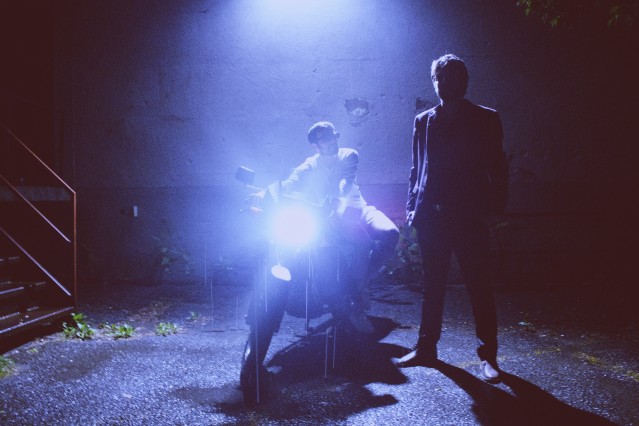
© Joseph Yarmush
Back to the music, I found a real sense of juxtaposition between moments of horror and moments of beauty on If He Dies…, I was wondering if that was part of the concept in the writing process?
Absolutely. The Middle East is a place that is at both times absolutely magical and breathtaking, and so worrisome and scary. The album (I hope) has this flow to it that leads one down these roads of these polar opposite sentiments.
Are the live shows improvisational or very structured?
Musically it is seventy five percent improvised, but you know, as you tour so much, you fall into certain patterns. With the visuals, it’s fifty-fifty. We have strong structured ideas but with much room within those structures for improvisation.
Is there an update on the film project you’ve been working on?
It’s really difficult to accept the pace that cinema works at! The script has been done since September, and I have a big meeting with the producers in March. My fingers are crossed as I really want to make this film. So much. It feels like the most important thing in my artistic life.
We look forward to it. My last question is one on Canada. The country’s been in the news a lot recently with the election of Justin Trudeau. It’s being held up as a bit of a liberal beacon at the moment. I was wondering what the feeling on the ground is, from your point of view?
Hmmmmm. My opinion is not a popular one, especially with native Canadians. I do not believe in him nor in anyone else running for the job. It’s just what the job is. Be you Liberal or Conservative, just like be you Democrat or Republican. Money and business drives countries, and money does all the talking. Things only happen in North America when they are convenient for money, not people. To me, it’s all theatre. After all, we Arabs have sadly mastered the art of political theatre.
To end on a happy note, where are you off to next on the tour?
Haha yes, very happy indeed. Udine and Milano. I am a huge fan of Italy. Cinema, music, food, wine… all of it. Such an amazing place.
Interview: Nicholas Burman
Photo: Tanya Traboulsi
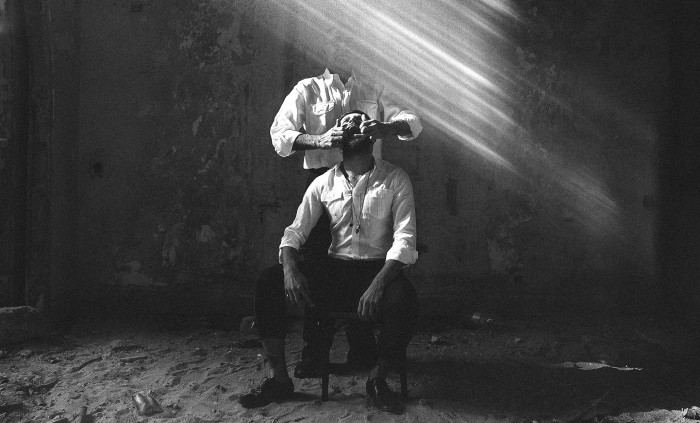
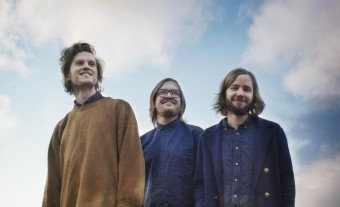


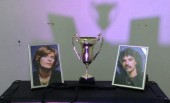
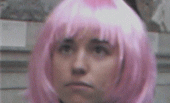
Follow us
Follow us on Facebook Follow us on Twitter Follow us on Google+ Subscribe our newsletter Add us to your feeds